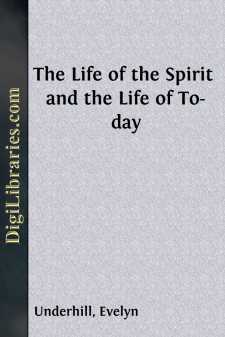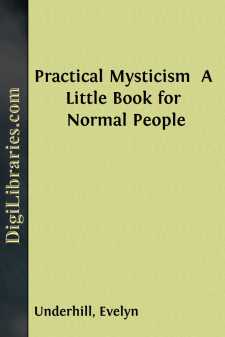Categories
- Antiques & Collectibles 13
- Architecture 36
- Art 48
- Bibles 22
- Biography & Autobiography 813
- Body, Mind & Spirit 142
- Business & Economics 28
- Children's Books 14
- Children's Fiction 11
- Computers 4
- Cooking 94
- Crafts & Hobbies 4
- Drama 346
- Education 46
- Family & Relationships 57
- Fiction 11829
- Games 19
- Gardening 17
- Health & Fitness 34
- History 1377
- House & Home 1
- Humor 147
- Juvenile Fiction 1873
- Juvenile Nonfiction 202
- Language Arts & Disciplines 88
- Law 16
- Literary Collections 686
- Literary Criticism 179
- Mathematics 13
- Medical 41
- Music 40
- Nature 179
- Non-Classifiable 1768
- Performing Arts 7
- Periodicals 1453
- Philosophy 64
- Photography 2
- Poetry 896
- Political Science 203
- Psychology 42
- Reference 154
- Religion 513
- Science 126
- Self-Help 84
- Social Science 81
- Sports & Recreation 34
- Study Aids 3
- Technology & Engineering 59
- Transportation 23
- Travel 463
- True Crime 29
Evelyn Underhill
Evelyn Underhill (1875–1941) was a British writer and mystic known for her works on Christian mysticism and spiritual life. She is best known for her influential book "Mysticism" (1911), which explores the nature of mystical experience across various religious traditions. Underhill emphasized the importance of personal spiritual growth and the contemplative life in her works, such as "The Spiritual Life" (1936). Throughout her career, she sought to make mysticism accessible to a broader audience and was a key figure in the revival of interest in Christian spirituality in the 20th century.
Author's Books:
Sort by:
by:
Evelyn Underhill
CHAPTER I THE CHARACTERS OF SPIRITUAL LIFE This book has been called "The Life of the Spirit and the Life of To-day" in order to emphasize as much as possible the practical, here-and-now nature of its subject; and specially to combat the idea that the spiritual life—or the mystic life, as its more intense manifestations are sometimes called—is to be regarded as primarily a matter of...
more...
by:
Evelyn Underhill
This little book, written during the last months of peace, goes to press in the first weeks of the great war. Many will feel that in such a time of conflict and horror, when only the most ignorant, disloyal, or apathetic can hope for quietness of mind, a book which deals with that which is called the "contemplative" attitude to existence is wholly out of place. So obvious, indeed, is this point...
more...



